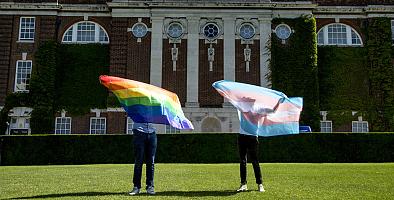Course information
Department
Length
1 year full-time or 2 years part-time
Course overview
The MA History is innovative, creative, free-thinking, stimulating, diverse and challenging – everything that is distinctive about history at Goldsmiths.
Why study MA History at Goldsmiths
- MA History is thematic and interdisciplinary. It has a focus on historical theory and methods, and European modern and early modern history including non-traditional military history, queer history and Black British History.
- You will develop specific subject interests through a range of optional modules and the dissertation.
- Your learning will be supported by peers and one-to-one sessions with tutors and supervisors.
- You will undertake an independent research dissertation on a theme of personal interest.
- You will have the opportunity to organise and present your work at an internal departmental postgraduate conference alongside students from other MA programmes.
You will have the opportunity to study module options offered by other institutions part of the University of London.
Contact the department
If you have specific questions about the degree, contact Dr Erica Wald.





